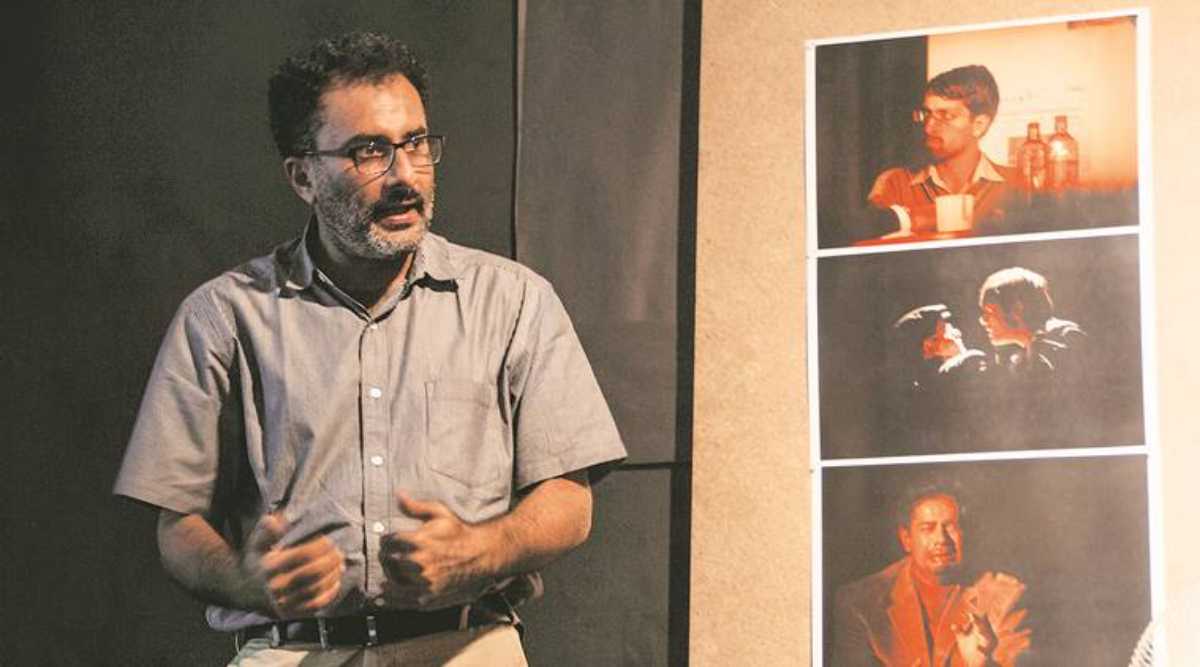 Ramu Ramanathan
Ramu RamanathanRamu Ramanathan is in Kharvel village, close to Dang forest, in the only house in a sea of greenery that is visited by peacocks, owls and a variety of other birds. The only way he can get an unbroken cell phone signal is to go and stand under an eucalyptus tree. The eucalyptus features in his recent collection of poems, titled To Sit on a Stone and Other Shorts, alongside themes such as love, technology, poets and politics. One of India’s most political playwrights, of works such as Cotton 56 Polyester 84 and Comrade Kumbhakarna, Ramanathan reveals a whimsical side in his writings. Excerpts from a phone conversation:
These writings appear like an artist’s doodle or snatches of thoughts. What was the idea behind publishing this book?
Post-publication, some friends have thought it was written during the pandemic but it is not so. The shorts have been scribbled over the years. If I were attending a tedious meeting, I would scribble something and preserve the piece of paper. If I were at a condolence meeting, I would write a few lines. There is a certain randomness about the works but, as a few other friends have said, you can read the whole book as one long poem.
Dibyajyoti Sarma, publisher of Red River as well as a short story author and translator, has published my previous collection of poems, My Encounters with a Peacock, which was more structured and about encounters with a talking, walking peacock. He had been seeing some of the writings that now make up To Sit on a Stone and Other Shorts, and curated it. There is a lot of other writings about politics, theatre and travel. There is a Part II to this book, in the form of writings on Mumbai, which will be published in 2021.
In the section, titled Five Mantras for Dussehra Day, you begin with the lines — “Thought for the day: / Let’s privatise the government”. There are also references to the Prime Minister and people who do not think. How did recent events motivate these writings?
What we have been debating and discussing at great length have been the three big fiascos that have transpired — demonetisation, GST and the new farm laws. Yet, this book is less political compared to my plays and newspaper columns.
Amid the comments on social frailties, you present nature that has a tongue-in-cheek attitude, especially the trees that learned to tiptoe out of the city. How do you see the relationship of people with the environment now?
In light of what has happened during the pandemic, even the entitled middle class has been having the conversation that perhaps, we have overdone the way we have been living. Because of the nature of work that I do, I travelled quite a lot before the lockdown, to the nooks and corners of the country. I have met different types of people and come across new realities which always astonish me. There was a conversation I had in Marathwada, during a drought, with an old farmer. He picked up a clump of soil and told me, ‘This is what it is all about’. We have so many associations with dharti and mitti through lok shahirs and progressive poets. What the peasant was telling me was, ‘A civilisation that does not look after soil is a doomed civilisation. We are on borrowed time, because we are not looking after our soil properly’.
You can call it neo-liberalisation, corporatisation, fertilising or short-sighted irrigation policy, but, ultimately what is happening is that the soil is losing all its nourishment. Any civilisation that doesn’t understand this basic truth is going to face the grave danger of just not being able to survive any more. The day after this conversation, we were at a meeting in Jalgaon and there experts were talking about greater productivity through more chemicals into the soil and how we needed to increase the number of crops we grow. What they do not understand is that only four companies dominate 75 per cent of the global trade in grains and only 17 plant species (out of 3,00,000) are providing the human race 90 per cent of its food. That stayed with me — that we need to try to preserve the planet as it was.
The past few months have seen writers, poets and students being jailed. How does that affect you?
What we are seeing is unprecedented. I know a lot of people, friends, colleagues and fellow writers who have chosen to be silent, some out of fear and others just out of being totally deadened by what is happening. There are those in the forefront, being activists-cum-artists, and you can see state machinery is being directly utilised, either through legal procedures or extra-constitutional repression.